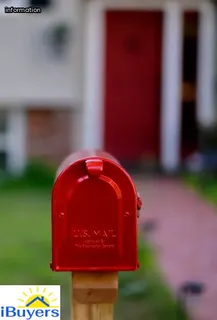A quitclaim deed is an important legal document that is used to transfer ownership of a property from one person to another. In Idaho, this type of deed is often used in situations where a home is being transferred due to marriage, divorce, or death.
It's important to understand the purpose of a quitclaim deed in order to ensure that all parties involved are adequately represented and the transfer is completed correctly. A quitclaim deed allows for a direct and unencumbered transfer of title from one party to another with no warranties or guarantees about the status of the property.
The deed does not require any proof or evidence to be presented by either party and it does not offer any protection against liens or other encumbrances on the property. Before filing for an Idaho Quitclaim Deed, it’s important to understand relevant state laws regarding real estate transfers and make sure that all parties involved are fully informed about their rights and responsibilities under the law.
As part of this process, both parties should also have their own legal representation when filing for the quitclaim deed in order to ensure that all paperwork is in order and they have adequate protection during the transaction.

Filing a quit claim deed in Idaho can offer a range of advantages and disadvantages. One of the primary benefits is that it is a relatively simple process compared to other forms of real estate transfer.
Additionally, the cost associated with filing a quit claim deed is often much lower than for other types of transfers. A quitclaim deed can also be used to quickly and easily transfer property between family members or close friends without having to go through lengthy legal proceedings.
However, with the ease of filing comes certain drawbacks. For example, the law does not provide any guarantee that the person transferring their interest will have clear title to the property being transferred.
Furthermore, if there are any outstanding liens against the property they will still remain after the transfer has been completed. Lastly, since no warranties are provided in a quit claim deed, it is important to do your due diligence before signing on the dotted line.
When it comes to real estate matters in Idaho, filing a quit claim deed is only one of the legal documents that may be needed. Other important documents can include deeds of trust and mortgages, as well as certificates of title, warranty deeds, and affidavits.
It is important to understand how each document works and its effects on ownership rights. Additionally, if a home or other property has been used as collateral for a loan or other financial obligation, a lien release should be filed when the obligation has been satisfied.
Depending on the county in which you live, there may also be additional forms that need to be completed before any transfer of property can take place. Understanding all of the necessary paperwork and requirements to properly file a quit claim deed is critical for Idaho homeowners seeking to make changes in ownership rights.

Filing a quitclaim deed is a process that can be completed relatively quickly when you understand the steps involved. In Idaho, it's important to know the exact legal requirements for creating and filing a quitclaim deed. This step-by-step guide will walk you through each required step, so that you can successfully file your quitclaim deed in the state of Idaho.
The first step is to prepare the document itself. The document must include all of the relevant information about the transaction including, but not limited to, the grantor's name, grantee's name, property description and legal description. You may need to consult with a lawyer or real estate agent if you are unsure of any of this information.
After the document is prepared it must be signed by both parties in front of a notary public. The next step is to record the quitclaim deed with your county clerk or recorder's office. You will need to provide them with a copy of the document as well as any applicable fees associated with recording it.
Once all of this information is submitted and accepted by your county clerk or recorder's office, they will issue you an official copy which serves as proof that it was legally filed. Finally, you should make sure that both parties keep copies of all documentation related to their transaction including copies of the original quitclaim deed and any additional documents relating to it such as receipts from filing fees or notary signatures. This ensures that both parties have complete records in case there are any disputes down the road regarding ownership rights or other issues related to their Idaho home.
Filing a quit claim deed properly in Idaho is an important part of transferring ownership of your home to another party. It's important to understand the process, as well as all of the necessary forms and documentation required for completing and filing the deed.
The first step is to obtain a "quit claim form" from your local county recorder's office, which will need to be filled out with information about you, the grantor, and the new owner, or grantee. You’ll also need to include details about the property itself and any liens that may exist on it.
Once complete, you must sign the document in front of a notary public, who will then affix their own signature and a stamp verifying the authenticity of both signatures. The next step is to file the document at your county recorder's office along with an acceptable form of payment; if accepted by the recorder, it will become part of the public record.
A successful filing means that title has been officially transferred from you to the new owner. In order for this process to be done correctly and legally in Idaho, it’s important that all steps are followed meticulously.

Are you looking to file a quit claim deed for your Idaho home but don't know where to begin? Fortunately, there are a number of downloadable templates available that make the filing process much easier. These templates provide an easy-to-follow format with sections outlining all the necessary information needed to complete the quitclaim deed.
The template also includes step-by-step instructions on how to fill out the form and any other documents required for filing. Additionally, these downloadable templates come with a variety of options to make sure that everything is accurately filled out and submitted in accordance with Idaho state laws.
Not only do these templates save time, but they also guarantee accuracy when submitting documents for filing. Whether you’re a first-time homeowner or have been in the same house for decades, these downloadable templates will help you quickly and correctly file your Idaho quitclaim deed.
When filing a quit claim deed for your Idaho home, it is important to understand the most common types of legal documents and forms that are available. A quit claim deed is a document that transfers ownership of real estate from one person to another.
It is also known as a “quick claim deed” or “quitclaim deed” and must be properly written, executed, and recorded in order to be legally binding. Additional legal documents and forms may include a grantor/grantee index, an affidavit of title, an abstract of title, an assignment of mortgage or other lien instruments, a survey, and certificate of title.
All these documents may need to be completed in order for the transfer of property to take place. Depending on the circumstances surrounding the transaction, additional legal papers such as power of attorney or authorization letters may also need to be completed.
With any legal document it is important to make sure all necessary information is included in order for the transaction to be valid.

Legal documents such as quitclaim deeds are an important part of owning a home, and some organizations offer scholarship opportunities related to the study of these documents. For example, the Idaho State Bar Foundation provides awards for legal writing on topics including quitclaim deeds.
The American Bar Association also offers several scholarships related to legal documents, such as the Robert F. Drinan National Scholarship which focuses on issues surrounding public interest law.
Additionally, there are many local organizations and foundations that offer scholarships to students who wish to pursue careers in law or gain knowledge about legal documents. With the right research and preparation, students can find a variety of opportunities to receive funding for their education while developing a better understanding of quitclaim deeds and other legal papers.
Idaho is a state that requires special attention when it comes to filing legal documents such as Quit Claim Deeds. With the right information, you can easily navigate the process of filing a Quit Claim Deed for your Idaho home.
Job postings related to legal documents in Idaho often require an understanding of the laws and procedures surrounding documents like Quit Claim Deeds. A thorough knowledge of state law and regulations is essential for any candidate applying for these positions.
Additionally, those with experience in dealing with filings and records will find themselves well-suited for such roles. Aspiring attorneys, paralegals, or other legal professionals should be aware of the necessary qualifications needed to fill job postings related to legal documents in Idaho.

Filing a quit claim deed for your Idaho home requires thorough research and understanding of the process. The first step is to understand what a quit claim deed is and how it pertains to Idaho real estate law.
A quitclaim deed is a legal document that transfers ownership of real property from one person to another without any warranties or promises made by either party. It is important to know that the grantor, or seller, gives up all their rights to the property with this type of deed.
To file a quit claim deed in Idaho, you need to be aware of the regulations and laws in place. You can obtain this information at your local county recorder's office or online through various resources.
Additionally, you should obtain copies of the necessary documents such as deeds, mortgages, liens, and other related paperwork. It is also important that you review these documents carefully before filing them with the recorder's office in order to ensure accuracy and avoid potential disputes down the line.
Finally, make sure you provide accurate information on the documents so that all parties involved are properly identified thus protecting everyone’s rights under Idaho state law.
Creating a quit claim deed for an Idaho home requires the identification of the exact location of the property. It is important to know exactly where your property is located so that your deed can be properly filed with the Idaho Recorder's Office.
Carefully consider whether you are filing within a city or county as this will determine which governing body needs to receive the paperwork. Additionally, you will need to provide specific information regarding the legal description of your property, such as its street address, parcel number or subdivision name.
All of these details are essential when filling out and submitting a quit claim deed in Idaho.

Preparing a quitclaim deed in Idaho requires the completion of certain forms so that the process can be completed. These forms include a warranty deed, an affidavit of title, a certified copy of the death certificate (if applicable), and an Idaho Real Property Transfer Tax Return Form.
The warranty deed should include the names of all parties involved and their addresses, as well as a legal description of the property. The affidavit of title needs to be notarized and include a list of all prior deeds related to the real estate being transferred by the quitclaim deed.
If there is any interest held by someone who has passed away, then a certified copy of their death certificate must also be included. Finally, an Idaho Real Property Transfer Tax Return Form should be filled out accurately to allow for proper taxation on the transfer.
FormsLegal provides a comprehensive guide to filing a quit claim deed in Idaho. This guide provides step-by-step instructions for properly preparing and submitting the legal paperwork.
In addition, FormsLegal offers helpful resources such as sample forms and templates, answers to common questions, and useful tips for completing the process. Their easy-to-navigate website makes it simple to find all of the necessary information regarding filing a quit claim deed for an Idaho home.
Furthermore, FormsLegal's customer service team is available to answer any additional questions that may arise during this process. With their help, anyone can confidently navigate the complexities of filing a quit claim deed in Idaho with ease.

In order to file a Quit Claim Deed for your Idaho home, there are several popular forms that you should be aware of. The first is the Idaho Quitclaim Deed Form which is a basic document that will allow you to transfer ownership of your home from yourself to another party.
This form must be signed by all parties involved in the transfer and must include any necessary information about the property being transferred. Additionally, an Affidavit of Death must be filed if transferring ownership due to the death of a joint owner or other interested party.
A Certification of Trust may also be required if you are transferring ownership as part of an estate plan or trust agreement. Finally, a Notary Public must witness the signing of all documents related to filing a Quit Claim Deed in order for it to be legally binding.
By filing these forms correctly, you can ensure that your Idaho home transfer is done properly and efficiently.
Filing a quitclaim deed is an important part of transferring title to your Idaho home. To make sure the process runs smoothly, there are certain steps that must be taken.
Begin by properly filling out the quitclaim deed with all relevant information, including the names of both parties involved and their addresses. The property description should be included as well, so be sure to include the legal description and any other pertinent details.
Once complete, have the document notarized by an Idaho Notary Public. Both parties must sign in front of the Notary in order for it to be valid.
After this is done, submit the completed quitclaim deed to your local county recorder’s office for recording within 30 days of being signed. The new owner will need to pay applicable fees as well as taxes on the property’s transfer at this time.
Lastly, check with your county assessor's office to make sure all property tax information is up-to-date and correct. Following these tips should ensure that transferring title with a quitclaim deed in Idaho goes smoothly and quickly without any hiccups along the way.

The state of Idaho has established statutes that govern the valid use of quit claim deeds for transferring property ownership. In order to legally transfer a title, certain requirements must be met for the deed to be deemed as valid.
The grantor, or seller, is responsible for providing a signed and notarized copy of the deed. It must also include a valid legal description of the property and accurately identify the grantee, or buyer.
Additionally, any necessary transfer taxes need to be paid prior to submitting the document for recording at the county clerk’s office. If all requirements are met then the deed can be recorded in the public records and become legally binding.
It is important to note that this type of deed does not provide any warranty regarding title or clear encumbrances on it; therefore, it is highly recommended that an experienced real estate attorney be consulted prior to taking action on filing a quit claim deed in Idaho.
After the completion of an Idaho quit claim deed, the grantor must make sure that the deed is signed and dated by all parties involved. The grantee then takes possession of the property and should record the deed with the county recorder's office in order to prove that they are now the legal owner.
This process typically requires payment of a fee. Once recorded, the new owner has sole ownership rights to the property, which can include right of access, use, enjoyment and transferability.
Depending on local regulations, there may be additional steps required such as filing a disclosure statement or real estate transfer declaration form. The deed should also include any restrictions or encumbrances that may affect future owners, such as an easement or mineral rights agreement.
Finally, it is important to consult with a qualified attorney to ensure that all legal requirements are met for transferring ownership of a home in Idaho.

The thought of transferring property ownership can seem intimidating, but documenting your assets with a quit claim deed is an important step for any Idaho homeowner. A quit claim deed is a legal document used to transfer real estate from one person to another, and it's an essential part of the process when transferring property ownership.
By filing a quit claim deed, you're ensuring that you have all the documentation and paperwork necessary to protect yourself and your rights in the event of any future disputes or complications. Filing a quit claim deed also gives you peace of mind knowing that your property is legally transferred to the right person and that you won't be held responsible for any potential liabilities in the future.
Furthermore, having a quit claim deed on file allows both parties involved in the transfer to easily prove ownership if needed. As such, it's important for all Idaho homeowners to understand the importance of filing a quit claim deed when making changes to their property assets.
When filing a quit claim deed for an Idaho home, it is important to explore all recording options available. In most cases, the county recorder's office will be the primary source of filing documents related to a property transfer.
The documents should be accompanied by proper identification and payment of any applicable fees. Depending on the situation and county requirements, additional forms such as affidavits or evidence of marital status may be necessary.
It is also possible to use a third-party provider to record the deed in some locations, although this may result in higher fees and longer processing times than recording directly with the county recorder's office. Additionally, it may be beneficial to consider online services that simplify the process and provide resources such as templates or detailed instructions for completing forms.
Ultimately, understanding all of your options can help make sure that you are able to properly file your quit claim deed in Idaho and avoid any unnecessary complications down the road.

If you need professional assistance filing a Quit Claim Deed for your Idaho home, there are many resources available. First, contact an experienced real estate attorney in your area to determine the necessary steps to properly complete the deed.
Additionally, it is important to check with local and state authorities regarding any regulations or paperwork that may need to be filed prior to signing and submitting the deed. Depending on where your property is located, you may also want to consult a title company or other real estate professional who can provide advice on how to go about completing the deed correctly.
Lastly, researching online or consulting with legal documents websites can help you find any required forms and records needed for completing the Quit Claim Deed efficiently. With these steps taken, you should be well on your way towards successfully filing a Quit Claim Deed for your Idaho home.
Filing a quit claim deed in Idaho is a relatively simple process. To begin, you'll need to obtain the correct forms from the county where your property is located.
Once you have the forms, you will then need to fill them out completely and accurately. You must provide information about yourself, as well as the current owner of the property and any other relevant parties involved.
Additionally, there must be witnesses present that can sign off on the deed. After all of this information has been provided, you will then take the forms to a local notary who will witness your signature and register it with the county recorder's office.
Finally, once all of this is completed, you will officially become the new owner of your Idaho home! Filing a quit claim deed in Idaho doesn't have to be overly complicated; following this complete guide can help ensure that your filing process goes smoothly and quickly.

Yes, a quit claim deed is an acceptable form of deed when transferring ownership or rights to real estate in Idaho. A quit claim deed is a legal document used to transfer interest or title of real property from one person to another without any warranties.
It is also known as a “quick claim” deed and is often used when transferring property between family members or close associates. When filing for a quit claim deed in Idaho, it is important to understand the process and what documents are necessary for the transaction.
Thankfully, our complete guide to filing a quit claim deed for your Idaho home will walk you through everything you need to know to ensure that your transfer of rights goes smoothly.
Adding someone to your deed in Idaho is a simple process if you understand the legal steps involved. To add a person to your deed, you must first obtain a Quit Claim Deed form from your county recorder's office.
This form must be filled out and signed by all parties involved in the transfer of ownership rights. Once completed, the Quit Claim Deed must be delivered to the county recorder's office where it will be officially recorded.
It is important to note that Idaho law requires both spouses to sign the deed when transferring property between married couples. Additionally, an owner may add another person’s name to his or her property by executing a Quit Claim Deed and having it officially recorded with the county recorder’s office.
Before taking this step, however, it is important for individuals to contact an attorney who specializes in property law for advice on how best to proceed. With proper guidance and preparation, anyone can use a Quit Claim Deed in Idaho to add another party onto their existing deed.
A quitclaim is an official legal document that is used to transfer ownership or interest in real estate. It is often used to transfer ownership of a home or other property between family members, such as when a parent gives their home to their child.
In Idaho, filing a quitclaim deed requires submitting the appropriate paperwork to the county in which the property is located. When filing a quitclaim deed in Idaho, it is important to understand what the document means and how it works.
A quitclaim deed transfers whatever interest the grantor has in the property, without any guarantee or warranty regarding title or ownership. This means that if there are any liens on the property, unpaid taxes, or other encumbrances, they will still remain with the property even after it has been transferred via a quitclaim deed.
As such, it is always recommended to do your research and ensure that all encumbrances have been cleared prior to transferring ownership of any real estate via a quitclaim deed in Idaho.
A: In Idaho, a Quit Claim Deed is considered a conveyance of real estate and must include the consideration paid for the property, the names of the grantor and grantee, and statutory language. A General Warranty Deed may be used to provide additional protection for the buyer as it provides more warranties than a Quit Claim Deed.
A: In the state of Idaho, a quit claim deed must be used to transfer the title of the property from one party to another. The document must be signed by all parties involved and is subject to the jurisdiction of Idaho law.